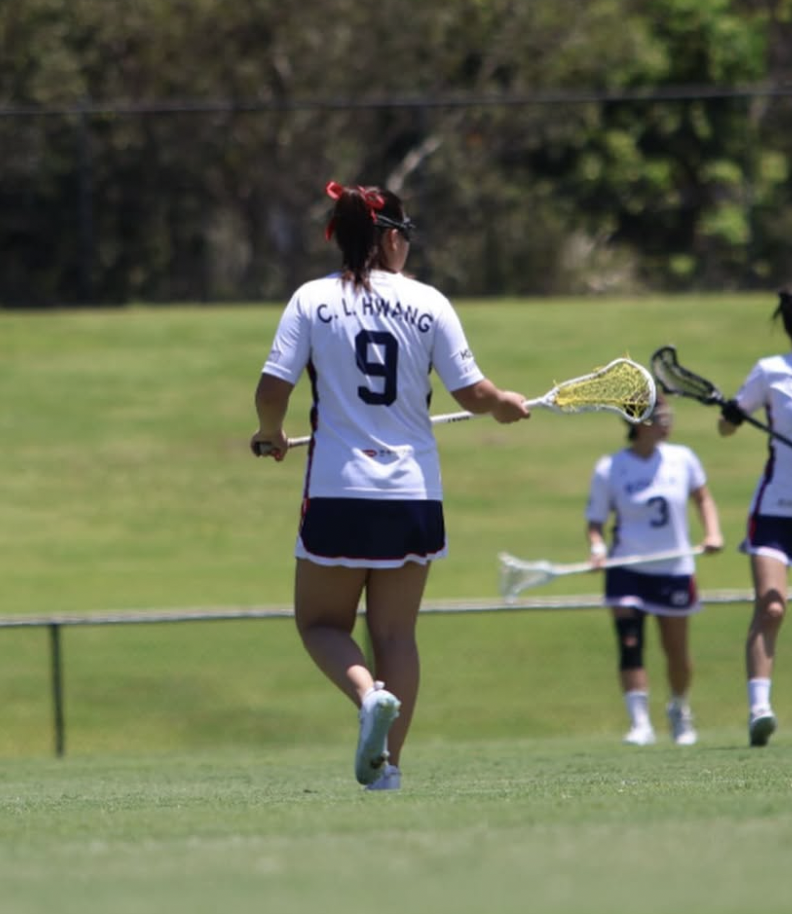From drafting the perfect team and thinking that this might be the year, to watching that perfect team fall apart in the first week, heartbreaking losses, and terrible trades, fantasy football is a hallmark for high school football lovers. While the main focus is on winning the league, what is almost more important is to not finish last.
Many fantasy football leagues are highlighted by a punishment at the end of the season. These punishments range from harmless pranks, such as wearing an embarrassing costume, to time-consuming, like taking the SAT, physically painful for example, running a mile while drinking 4 gallons of milk, to potentially dangerous or uncomfortable. What starts as a funny way of ribbing the worst in the league, can quickly descend into taking things too far. The question is; where is the line drawn?
At the start of the football season, punishments seem like a fun and unfortunate activity because, after all, no one thinks they will end up as the person doing the punishment. As the year goes on, what seemed like an impossibility can quickly become inevitable, and then many people can have second thoughts about the original plan. What might have sounded like a funny idea in August doesn’t seem so appealing when you realize that you have to be the one completing the punishment. Ms. McGuire has concerns over this saying, “It can be really, really hard to be the one person in a crowd saying I don’t want something like that to happen and there can be a lot of retribution.” Despite the many reasons that might seem to point against doing fantasy football punishments, they remain a staple among high school students.
Some students thought their punishments through ahead of time including Jacob Foti ‘24. While he didn’t expect to be the unfortunate one taking part in the punishment, he thought through the long-term risks, “Definitely part of my idea, why I did ‘The cage’ was because it’s not as bad as shaving your head. If it was me, then I wouldn’t hate it too much.”
The cage is a very popular punishment for high schoolers at SSSAS. For those who might not be aware, the cage, in its simplest terms is exactly what it sounds like. A person is stuck inside a cage, most likely a dog crate, where they are subjected to all kinds of “trash, food, and really gross things thrown on them,” as Jacob Foti, currently a putrid 0-11 in fantasy football, and future inhabitant of the cage explained.
What makes the cage so appealing is that while it is unquestionably disgusting and not to be recommended, the long term effects are not severe and can be solved quickly. Nick Foster ‘24, a former occupant of the cage recounted some of his horror stories saying, “It was a life changing experience, I had to scooter home afterwards in the freezing cold covered in maple syrup and grease.”
Nick is quite the expert on fantasy punishments. Surprisingly he has been a part of a few punishments, as he has taken part in everything from a buzz cut, to swimming across a storm drain in February, and the aforementioned cage. The biggest risk with any of these has been, “Freezing cold and leeches.”
The cage is far from the only punishment that students are participating in. Just like the students taking part in these punishments, they range in all forms and manners. A punishment taken up by the freshman takes the humiliation to another level. While the cage is limited to a backyard and the people present seeing the ordeal, the loser of a freshmen league (entirely made up of boys), will have to come to school wearing leggings. Leggings are a popular article of clothing for many girls at the school, but for many boys, this could be considered a fate worse than death. Despite this, Luca Leonardo ‘27, says he would be ok with taking part in the punishment. He says that he doesn’t mind wearing leggings to school, but also mentioned he is not the one losing in his league; this opinion might change depending on how the season finishes. Luca said he was fully aware of the risks at the start of the season and if he were to go back now, he would still agree to taking part in the punishment, knowing he might be the one doing the punishment. This shows there are some students comfortable with completing a potentially embarrassing punishment.
Many people respond to punishments differently. Sometimes how the punishment is perceived and its severity can depend on the person taking part in the punishment, Ms. McGuire has concerns about this saying, “There are kids who wouldn’t ‘mind’; they wouldn’t be rattled and upset. But nobody knows that in the moment, especially among boys who aren’t acculturated to show how they are feeling in a certain situation, a lot of times boys might often laugh at something they don’t even find funny.” In the moment it can be hard to stand up to a group, especially of your friends and tell them you aren’t comfortable with a task, especially if you agreed to that same punishment months earlier.
Peer pressure can also be a large part of fantasy punishments that can further complicate the situation. While fantasy leagues can contain anywhere from 6-16 people, there is only one unlucky person doing the punishment. This can often feel like that one person is being singled out by a much larger group, a position no person ever wants to be in. Nick Foster confirmed this saying, “Yes, I definitely felt pressured to get in the cage,” even saying it wasn’t something he was totally comfortable with doing at the time.
Concerns can also arise based on who is present and is watching what is undeniably a form of humiliation. It’s one thing if a small group of friends are there to dump syrup on someone in a cage, but what happens when someone pulls out their phone and shares the pictures on social media. After all, putting trust into other high school students not to go too far is a risky decision. Jacob Foti voiced his concerns saying, “I have concerns that someone will do something stupid that could potentially hurt someone. I’m going to try to not have people send videos out, that wouldn’t help.”
The main underlying fear running through the back of students head’s when doing punishments is that the school might get involved. Ms. McGuire has had to get involved in the past when fantasy punishments have crossed the line and gone too far. “Those sorts of things (fantasy football punishments) should not take place on campus… Practical jokes where someone has the potential of getting hurt, and you can’t always predict that, it’s not a great idea to do at school.”
Students thinking about doing fantasy football punishments should definitely remember to keep them away from school. Punishments can serve as a learning experience for some; when they are deciding on a punishment for next year, they will remember their experience. Jacob Foti will remember the cage for a long time, “I probably would have done the milk mile or something easier if I had known I was going to be the person doing it.” Others go in the opposite direction, as Nick Foster added, “Now, if there’s a loser, I’m going all in. After you lose three times, you’re not going to lose again.”
Some might think that because their punishment isn’t at school they can get away with anything, this is not a good idea either. Ms. McGuire says, “To people who want to push the envelope, I think think twice about it, you do not know how someone is actually feeling. Oftentimes people will say it would be fine if it was me, but it’s not you and you don’t know how you would feel in that moment.”
So, when you are pouring syrup on someone in a cage, or laughing as the loser chugs a gallon of milk while running a mile, or feeling the embarrassment as they trudge into school wearing leggings, remember that you could be that same person next year and keep that in mind when making these decisions.




























